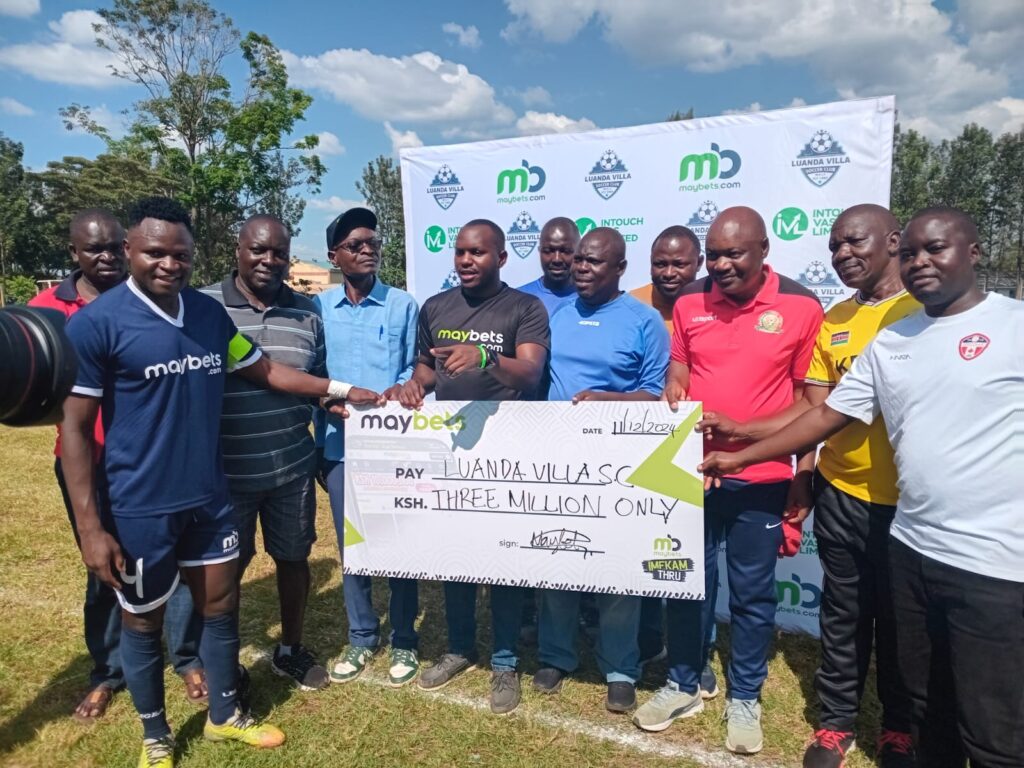According to emerging reports, Luanda Villa officials now argue that Maybets Kenya failed to honor key financial and logistical commitments despite gaining significant publicity and branding leverage from the partnership. The club contends that the so-called resolution was skewed and that Maybets exploited the goodwill of a struggling grassroots club, only to exit once the media mileage had been reaped.
“We were promised support to uplift the club, help with equipment, allowances, and match logistics, but only a fraction of that came through,” said a senior Luanda Villa official, speaking on condition of anonymity. “They left us exposed, and we are now considering our legal options.”
Industry Outrage and Questions of Credibility
The unfolding developments have sparked widespread concern within Kenya’s sports fraternity, with industry players and football stakeholders questioning the corporate credibility of Maybets Kenya and calling for stricter regulation of sports sponsorship agreements.
Observers argue that Maybets Kenya rode on the visibility and community goodwill associated with supporting a National Super League club only to pull out without transparency or accountability. The public unveiling of the deal in December 2024 was heavily marketed across media platforms, painting the firm as a champion of grassroots sports development — a narrative now being challenged.
Exploiting Grassroots Clubs for Publicity?
Football analysts and activists say this is not an isolated case, pointing to a growing trend where well-funded corporate entities manipulate small community clubs for branding purposes without meaningful or sustained investment.
“We are seeing a worrying pattern where companies use grassroots clubs as cheap marketing tools, then walk away after extracting maximum PR value,” said Tom Odhiambo, a sports governance advocate. “The lack of legal safeguards leaves these clubs vulnerable and voiceless.”
Who Will Protect Grassroots Football?
The Luanda Villa-Maybets saga has reignited debate on the need for protective frameworks and oversight bodies to monitor and enforce sports sponsorship contracts, especially at the grassroots level, where resources are already scarce and exploitation risks are high.
The Football Kenya Federation (FKF) and Sports Disputes Tribunal are now under pressure to intervene — not only to investigate the matter but to develop enforceable standards for commercial partnerships between corporates and lower-league clubs.
Without proper intervention, stakeholders fear that Kenya’s grassroots football scene will remain exposed to predatory corporates whose actions derail community sports development while projecting a façade of support.
The Bigger Picture: Not Just a Luanda Villa Problem
This is a wake-up call to all community clubs, sports associations, and government bodies: sponsorship without enforceability is a ticking time bomb. While brand partnerships are vital for sports growth, unchecked corporate impunity undermines the very soul of grassroots football — passion, community, and development.
What Can Be Done?
Establish legal templates for sponsorship agreements vetted by FKF or county governments.
Create a registry of compliant and blacklisted sponsors. Encourage whistleblowing and public reporting of unethical sponsor conduct.
Demand full transparency from corporates engaging with grassroots sports.
Grassroots football deserves protection, dignity, and accountability — not exploitation by vultures posing as investors.
[/full]





